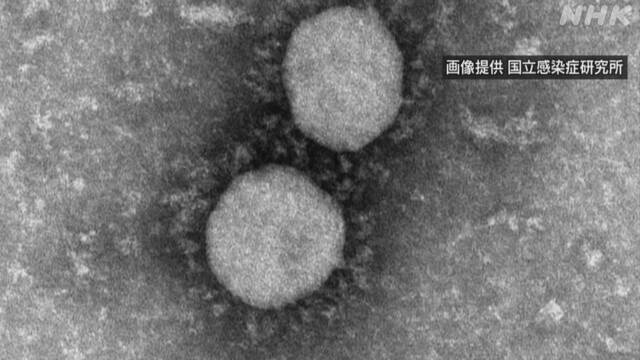The National Institute of Infectious Diseases analyzed how the new coronavirus "Delta strain", which has become mainstream in Japan, spread based on genetic data. It turns out that it seems to have spread.
The National Institute of Infectious Diseases presented the results of analyzing the gene of the virus collected from infected people and how it spread to the highly infectious mutant virus Delta strain at an expert meeting of the Ministry of Health, Labor and Welfare on the 4th. ..
According to it, the earliest strain of Delta strains currently spreading all over the country was found to be a virus detected in a person who had never traveled abroad in the Tokyo metropolitan area on May 18, and further investigation revealed. A virus similar to this was found in airport quarantine on April 16th.
It is estimated that the National Institute of Infectious Diseases expanded from one starting point that flowed in from overseas, mainly in the Tokyo metropolitan area, and then spread nationwide.
On the other hand, many of the clusters of Delta strains that seemed to have flowed in from overseas, which were confirmed in Kanto, Kansai, Chubu, Kyushu, etc. around May, did not lead to a large spread of infection, and by the beginning of July, they were almost there. It seems that it has been settled.
Takaji Wakita, director of the National Institute of Infectious Diseases, said, "Even in the past domestic epidemics, the epidemic has spread nationwide from one starting point, and the same thing may have happened this time." ..
Delta strains Almost 90% of all infections in the metropolitan area?
The highly infectious mutated new coronavirus "Delta strain" has already accounted for almost 90% of all infections in the Tokyo metropolitan area and more than 60% in Kansai. Infectious Diseases Research Institute has compiled.
The National Institute of Infectious Diseases estimates the proportion of viruses containing the "L452R" mutation found in delta strains based on data from "mutant screening tests" of seven private testing companies. The results were presented at an expert meeting of the Ministry of Health, Labor and Welfare on the 4th.
According to this, Delta stocks already account for 90% in Tokyo, and 89% in 1 metropolitan area including Kanagawa, Saitama, and Chiba prefectures, and almost all of them will be replaced by the end of this month.
In addition, in 2 prefectures and 1 prefecture in Osaka, Kyoto, and Hyogo prefectures, it was low until the beginning of last month, but it has expanded rapidly to 63%, and it is said that it will exceed 80% by the end of this month. ..
Furthermore, it has been pointed out that the replacement is progressing in various places, such as 89% in Okinawa prefecture and 85% in Fukuoka prefecture, and the number of inpatients is increasing rapidly, leading to tight medical care.
Takaji Wakita, chairman of the expert meeting, said, "The infectivity of Delta strains is about twice that of conventional viruses, and it is difficult to control even if the same measures as before are taken with the same strength. In the area where we live, we have no choice but to reduce the chances of contact between people as well as curb the flow of people. "

